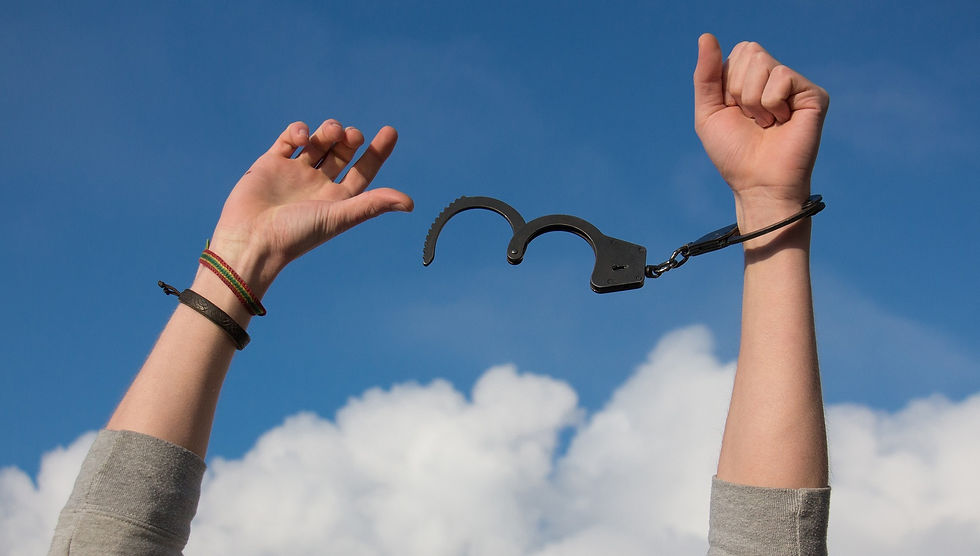The State As An Addiction
- Nikola Pavkovic
- May 20, 2023
- 3 min read

Larken Rose, one of the great Voluntaryists of our time has famously identified the belief in the authority of the state as a religious superstition, a cult into which all peoples are indoctrinated. The greatest lie ever told to humanity, that some people may have a right to steal from, kill and enslave others, whether in the name of a supposed ‘divine mandate’, ‘democratic consensus’, ‘public order’, ‘equality of peoples’, or perhaps most pernicious, ‘the greater good’. This dogma has captured nearly all peoples of Earth, and is certainly the most successful religion ever. It is certainly an illuminating observation, that the patterns of belief which constitute statism are simply religious zealotry by another name.
It is in a similar sense that I wish to identify another characteristic of the relationship to the state– that is, that the state is an addiction. It makes victims of innocent people, and turns them into servants for an irrational power over their will. It grows larger over time, as the victim is deceived that they ‘need’ more to be happy or secure. As it grows, it becomes harder to stop, the victim creates ingrained patterns of behavior and justifications for their addiction, they will often fight like their life depends on it in order to satisfy the addiction. Most sinister, it makes the victim dependent, creating a painful withdrawal should the victim ever decide to escape, and feeding into delusions and justifications that the person ‘needs’ the addiction.
All states grow over time, even when it is constituted with checks and balances. Just as ‘the right of the people to keep and bear arms shall not be infringed’, so too ‘I will only smoke once a day’. We have heard both lines before, shortly before it was proven false. All states hurt their population, even if they purport to protect them, so too are all addicts harmed by their addiction. Either directly, through physically harming the body of the victim, or indirectly, through destroying their well-being and prosperity, it is a harm. The longer the victim is addicted, the greater the damage, and the greater the withdrawal.
And all states turn their victims into dependents. ‘State welfare’, a vicious oxymoron like much of the state’s vocabulary, creates the illusion of satisfaction, but in reality only tightens its grip on the victim, making them view the state not as a violent attacker, but a paternal provider. To some greater or lesser extent, the state makes everyone in its borders a ‘beneficiary’ of its works, and so convinces them that they ‘need’ the state. The smoker feels irritable, and so he smokes and feels better– not realizing he is irritable because he is a smoker. So too, ‘citizens’ are poor, and so when the state ‘gifts’ them goods such as shelter or police, they feel their needs are somehow alleviated, not realizing it is the state which destroys wealth and promotes poverty.
This substance, the state, has fascinating properties and effects on the society which is its victim. At once, it is a stimulant, causing activity where there otherwise shouldn’t be, like the rapid heartbeat of an economic boom and the seizure that is an economic bust. It is also a depressant, crushing activity and response where there otherwise would be, like the hampered breath of a socialist healthcare system, or the incontinence of a state environmental agency. As well, it is a hallucinogen, with the profound effect that the subject imagines a heartbeat of 300 beats per minute and gasping breaths to be a normal state of affairs, no matter how it harms or hampers them.
There is a way to stop addiction, and that is to face withdrawal. Where we are dependent, we will suffer withdrawal when the state is removed, and nature reasserts itself. For a time, those who depended on the state for healthcare will go without healthcare. For a time, those who depended on the state for protection will go unprotected. But a free society will reassert itself in good health, if given time to heal. As said previously, the longer the addiction goes on, the more painful the withdrawal is, as dependence has grown. Therefore, for the good of our society, the best course of action is that we release ourselves from this addiction immediately, and heal as soon as possible.















